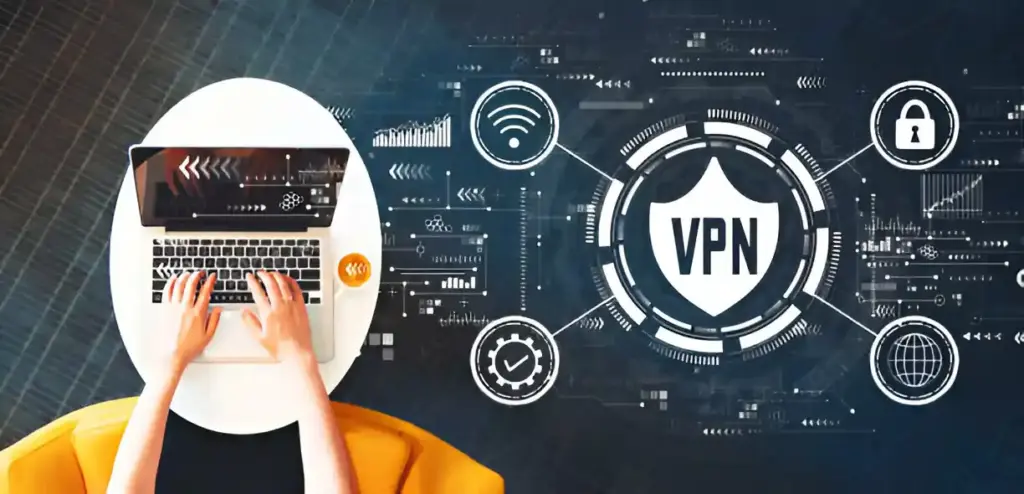When it comes to online privacy, choosing between a proxy and a VPN can be a daunting task. Both tools offer unique features and advantages, and understanding their operational differences is crucial. This guide will help you navigate the proxy vs VPN debate, highlighting their distinct uses and benefits to aid in making an informed decision.
Understanding the Basics: Proxy vs VPN
A proxy server acts as an intermediary between your device and the internet, routing your traffic through a different server. This means that the destination website sees the proxy server’s IP address instead of your own. This can be particularly useful in various scenarios. For instance, schools often use proxy servers to block access to inappropriate websites, ensuring students can only access educational content during school hours. Parents can also use proxies to control content restrictions at home.
On the other hand, VPNs (Virtual Private Networks) go a step further by not only masking your IP address but also encrypting your entire internet connection. This provides a higher level of security as every piece of data transmitted between your device and the internet is securely encrypted. For example, journalists and activists in restrictive countries frequently use VPNs to bypass censorship and communicate securely, ensuring their safety and privacy.
The fundamental difference between proxies and VPNs lies in their security capabilities. Proxies offer basic anonymity by hiding your IP address but do not encrypt your data, leaving it vulnerable to interception. VPNs provide comprehensive security by encrypting all data traffic, making them indispensable for tasks that require a high degree of privacy and security. This distinction is crucial when choosing the right tool for your online privacy needs.
Proxy vs VPN: Use Cases
Proxy Servers
Proxies are widely used beyond simple IP masking. In corporate environments, proxies monitor and restrict employee internet usage, improving productivity and ensuring compliance with company policies. Additionally, content delivery networks (CDNs) use proxies to cache web content closer to users, significantly reducing load times and bandwidth usage. According to a report by Statista, over 20% of companies utilize proxy servers to enhance network performance and security.
An anecdote to illustrate this: A small tech company implemented proxy servers to manage and monitor their employees’ internet usage. They found that by blocking access to social media and streaming sites during work hours, they significantly increased productivity. Additionally, their IT team used proxies to manage software updates, ensuring that all company devices received updates without overwhelming their network bandwidth.
VPNs
VPNs are invaluable for individuals and organizations that prioritize data security. They are commonly used by remote workers to securely access company networks, protecting sensitive information from potential cyber threats. A 2020 survey by Buffer revealed that nearly 50% of employees globally work remotely, many of whom rely on VPNs for secure connections. Furthermore, VPNs are essential for bypassing internet censorship in countries with restrictive internet policies, allowing users to freely access information and communicate securely.
Consider the case of an international journalist who frequently travels to countries with strict internet regulations. Using a VPN, she can securely connect to her home country’s servers, bypassing local censorship and accessing vital news sources. This not only ensures her safety but also allows her to continue reporting accurately and without restrictions.
Specific Applications: Proxies and VPNs
In addition to their primary functions, both proxies and VPNs have unique applications. For example, proxies can be used for web scraping, allowing businesses to gather competitive intelligence without revealing their identity. On the other hand, VPNs are increasingly used by gamers to reduce latency and avoid DDoS attacks, ensuring a smoother and more secure gaming experience.
Making the Right Choice
Ultimately, the choice between a proxy server and a VPN depends on your specific needs and priorities. If you require simple IP masking and access to geo-restricted content, a proxy may be sufficient. However, for those seeking comprehensive security and privacy, particularly in the face of growing cyber threats, a VPN is the superior choice.
As technology continues to advance and the digital landscape becomes more complex, staying informed about these tools is essential. By understanding the capabilities and benefits of proxies and VPNs, you can make informed decisions to protect your online activities and personal information effectively. In conclusion, whether you choose a proxy or a VPN, both tools play crucial roles in enhancing online privacy and security. By evaluating your needs and understanding their differences, you can select the right tool to safeguard your digital presence.
